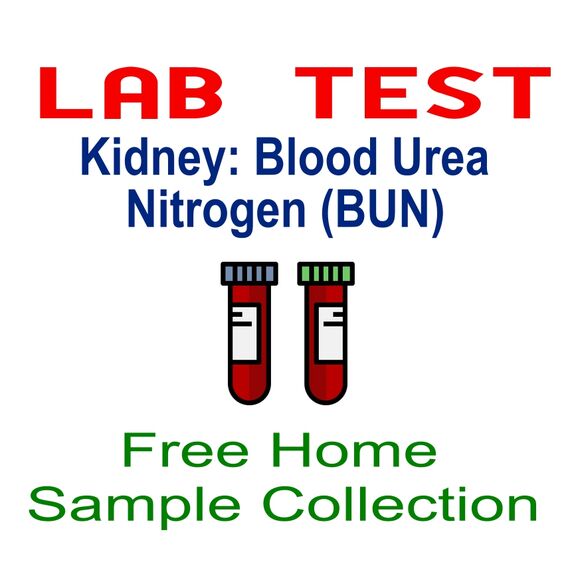This test is aslo known as...............
The blood urea nitrogen (BUN) test reveals important information about how well your kidneys are working. A BUN test measures the amount of urea nitrogen that's in your blood.
Here's how your body typically forms and gets rid of urea nitrogen:
- Your liver produces ammonia — which contains nitrogen — after it breaks down proteins used by your body's cells.
- The nitrogen combines with other elements, such as carbon, hydrogen and oxygen, to form urea, which is a chemical waste product.
- The urea travels from your liver to your kidneys through your bloodstream.
- Healthy kidneys filter urea and remove other waste products from your blood.
- The filtered waste products leave your body through urine.
Input your data
Your healthcare provider may order a BUN test:
- If he or she suspects that you have kidney disease or damage
- If your kidney function needs to be evaluated, especially if you have a chronic condition such as diabetes or high blood pressure
- To judge the effectiveness of dialysis treatment if you're receiving hemodialysis or peritoneal dialysis
- As a part of routine health screenings or when kidney dysfunction is suspected to help diagnose a number of other conditions, such as liver damage, urinary tract obstruction, congestive heart failure or gastrointestinal bleeding — although an abnormal BUN test result alone doesn't confirm any of these conditions
- If kidney problems are the main concern, the creatinine levels in your blood will likely also be measured when your blood is tested for urea nitrogen levels. Creatinine is another waste product that healthy kidneys filter out of your body through urine. High levels of creatinine in your blood may be a sign of kidney damage.

No special preparations required.
None
Dummy Test
Type the specimeny type like blood, urine or any other specimen required.
Sample report in a format
No reviews found


